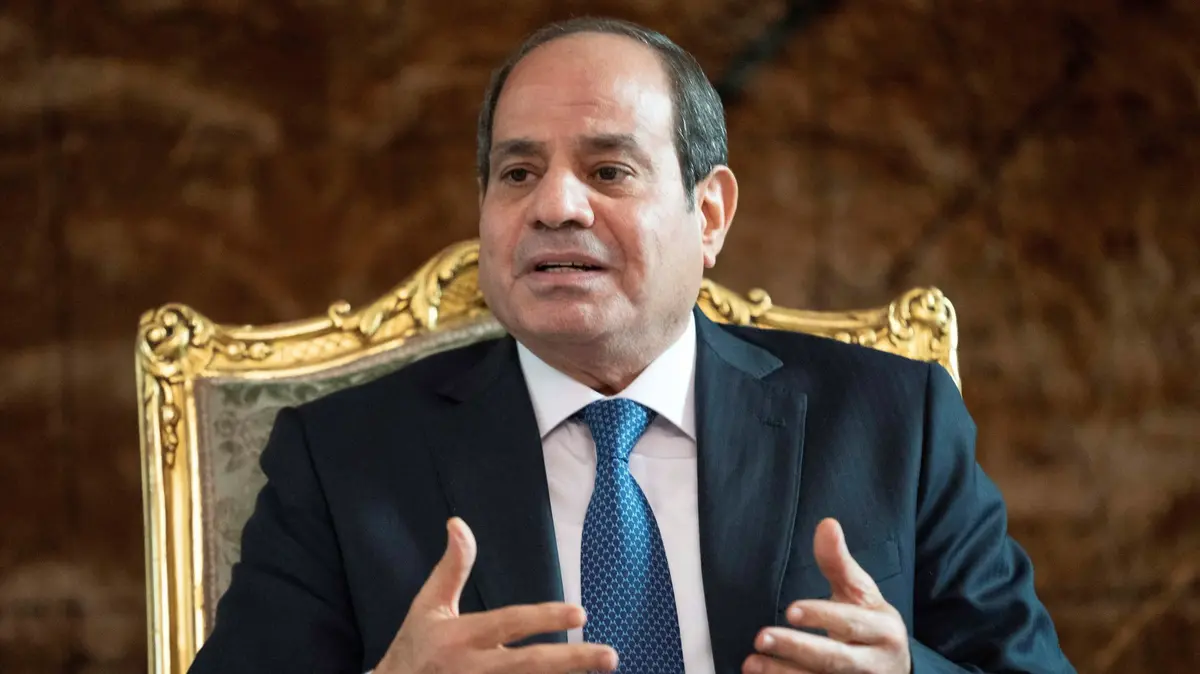It wasn't that long ago.
In April 2005, two days after the approval of the same-sex marriage law in Spain, the Faro de Vigo conducted a survey among Galician mayors to find out how they felt about this issue.
“I refuse to marry fagots.
It goes against my ideas”, replied the popular Alejandro Rodríguez, then Oia councillor.
"A couple that is abnormal should not be seen as normal," added Alberto Blanco from the town of Muxía;
"I prefer that two women get married because they can always do something..., but not two men", reflected (if that can be called a reflection) Manuel Costa from the municipality of Agolada.
"Things like this will make the new generations confuse the sexes," concluded the then mayor of Negreira, José Blanco, pretending to be prophetic.
Obviously the law did not make anyone confused, quite the opposite: it was one of the largest social initiatives in the country's history after the divorce reform of 1981, which ended the legal submission of women to their husbands.
After the incorporation of Chile in March of this year and Switzerland from next month, there are already thirty States that, at the national level or in some jurisdictions, recognize civil unions between people of the same sex.
In Spain, moreover,
The Ministry of Equality confirms that this June 27, the approval of the law for the real and effective equality of trans people and for the guarantee of LGTBI rights, known as the trans law, will be taken to the Council of Ministers.
Later, the law will begin the processing phase in Congress.
Beyond the obvious support that this entails in terms of equality, the expansion of the rights of LGTBIQ+ people —which groups lesbians, gays, transgenders, transsexuals, bisexuals, intersexuals, queer under these acronyms, and leaves the + sign for those who venven— is also producing economic effects worthy of exploration, as recognized by many economists and numerous academic works.
There are those that quantify, based on population estimates, the world GDP generated by the people of the group —with ranges from the 3.9 trillion that Credit Suisse estimated in 2021 to the 4.7 trillion dollars that LGBT Capital calculates for this year —.
In this fictional exercise, if the people who identify themselves within the group were inhabitants of the same country,
this would be the third or fourth largest economy in the world and would have a presence at the G-7 meetings.
In the case of Spain, its weight in GDP would be 75,000 million dollars by 2022, the consultant calculates.
Data from macro surveys such as those carried out by Gallup show that the percentage of people who openly position themselves within the group is growing rapidly: in the United States it has gone from 3.5% in 2012 to 7.1% last year.
In Europe they are more than 6% German, Spanish, English or Dutch.
But as Julio Bruno explains on the other end of the phone from London, who until a few months ago was the global CEO of Time Out and is one of the 100 global executives recognized by Yahoo!
Finance for LGTBIQ+ defense, it is not about simplifying or reducing it in that way, "because there are 7.7 billion minorities in the world, each individual is unique."
Or, as one of the speakers mentioned at the MyGwork conference, which this week brought together thousands of people from around the globe,
“We do not live nor do we want to live on an LGTBIQ+ planet;
we live in the world that has touched us”.
In any case, according to the Zurich-based company, the data shows an upward trend in the purchasing power of the collective in all regions, with the exception of countries such as Brazil or the United Kingdom.
There is abundant literature, especially in the US, to explain why social rights translate into economic rights.
In The
Economic Value of Marriage for Same Sex Couples,
the director of the Center for Public Policy at the University of Massachusetts, Lee Badgett, already assured in 2009 that the denial of rights imposes economic damage on both couples and their families.
As an example, the US Accounting Office has identified 1,138 legal provisions that derive from marriage and that provide benefits or privileges that are otherwise impossible to access.
“Same-sex couples who cannot marry are deprived of the economic efficiencies, cost savings, and cultural and social value associated with earnings compared to being single,” writes Badgett, who quantifies the cost of homophobia and transphobia in 1% of the GDP of each country.
It is not only marriage: adoption, the protection of gender identity, the prohibition of conversion therapies, migratory rights for couples, access to assisted reproduction techniques, sex reassignment surgery or hormonal therapies are layers of rights that are added by the most advanced countries.
In the end, they translate into economic well-being that generates new opportunities for local companies.
And you don't have to go far to see it: the step of 1,
Tourism is one of those niches where the impact of this community has been most documented.
It accounts for around 10% of tourists in the world and accumulates 16% of total travel spending, which represents almost 200,000 million euros a year, according to the latest data from the World Travel & Tourism Council.
People in the group, especially gays, have a greater capacity to travel at any time of the year and their spending is higher: they make four to six more trips a year than the heterosexual population and spend 33% more —rather, They distribute their spending differently.
behind the US
Mykonos, Vienna, Berlin, Tel Aviv, San Francisco… There are many tourist destinations that the community is committed to.
Spain is the second country in the world as an LGBTIQ+ destination, behind the USA. And its star places are Sitges, Ibiza, Torremolinos, Maspalomas, Barcelona, Madrid or Benidorm.
Miguel Ángel Sanz Castedo, director of Turespaña, explains that Spain has been working in this segment for many years, and positioning itself in the world as one of the pioneering countries.
“For years now, he has been at the forefront of LGTBIQ+ legislation and rights.
In 2005, Spain was the third country to allow same-sex marriage, surpassing the United States by 10 years.
According to a 2019 report from the Pew Research Center, it is one of the three countries that are most accepting of homosexuality.
And we are among the 20 freest countries in the world,
according to Freedom in the World.
There are seven million tourists a year, which represented some 8,000 million euros of income.
"It is the country with the highest profit in Europe (accommodating almost 20% of the tourism business of this group in the European Union)", says Sanz Castedo.
In the latest edition of the 2021 Gay Travel Index, it ranked second in the world ranking —among more than 200 countries— of the safest destinations for this segment, along with Malta and Portugal, each with 11 points.
Above is only Canada, which obtained the maximum score (13).
In the latest edition of the 2021 Gay Travel Index, it ranked second in the world ranking —among more than 200 countries— of the safest destinations for this segment, along with Malta and Portugal, each with 11 points.
Above is only Canada, which obtained the maximum score (13).
In the latest edition of the 2021 Gay Travel Index, it ranked second in the world ranking —among more than 200 countries— of the safest destinations for this segment, along with Malta and Portugal, each with 11 points.
Above is only Canada, which obtained the maximum score (13).
It is clear that tolerant countries greatly increase their income from tourism.
Two contrasting examples: in Thailand, the main destination in the Asian region, these travelers leave around 6.5 billion dollars a year, according to LGBT Capital (2020 data).
In Brazil, the homophobic policies of its president, the far-right Jair Bolsonaro, are beginning to take their toll, and revenues only reached 600 million in 2020 (although the impact of the pandemic that year cannot be ignored).
Consumption habits mean that more and more companies are sharpening their noses in search of these customers, despite the fact that heterosexual consumers have similar consumption patterns.
Eduardo Irastorza, a professor at EAE, believes that directly attributing greater purchasing power to the group is a cliché to a certain extent, and he prefers to speak of different needs and preferences according to age ranges.
"Although obviously, if you don't have very large family responsibilities, you have a higher income to spend on yourself."
He talks about the community's influence on niche trends ranging from fashion to perfume to lifestyle.
And he points out that insurance, health, entertainment and especially everything related to the management of loneliness will be a source of offers in the future.
And if technology advances as it seems,
The fact that sexual orientation or gender definition are traits valued by brands will soon be overcome.
"The
big data
will be able to personalize the offers to such an extent that all those distinctions are diluted”.
At the moment, the collective is considered a key customer segment.
Above all, the gay, who is defined as a
premium consumer
and demanding.
It is extraordinarily attractive and profitable for brands.
Due to these lower family charges, "it has a purchasing power twice the standard," they indicate in the Axel Hotels chain.
Gay couples, who are classified as DINKY (double salary without children), usually do not have schools to pay for or uniforms to buy.
“Most of us don't have family responsibilities or worry about saving, about leaving a heritage to another generation.
We are more predisposed to consumption, we spend more money on leisure and, unfortunately, many still have that family uprooting and we need to go out on the street more, travel more and interact more", argues Jokin Egaña, director of the EGF Group, a consultancy specialized in that market.
The community is loyal to the brands and products that support the collective (fashion, beauty, health, design, technology, culture, architecture, gastronomy and nightlife).
In fact, 55% would do business with companies committed to diversity and 70% would pay a supplement for a product from a company that supports the group”, according to Axel Hotels.
Juan Juliá is the founder and president of this hotel chain.
Juliá had been dreaming for years of opening a hotel aimed at the LGTBIQ + collective, his community, but with
a heterofriendly
philosophy .
He opened his first hotel in Barcelona in 2003 and today it is in full expansion, with 10 hotels and 3 in the pipeline.
There are many FMCG companies that are sensitive to diversity.
"These companies work for inclusion and diversity and consistently seek their gay market," says Egaña.
Instead, he denounces the
pinkwashing
(facelift) that many others do, who join the bandwagon every Pride party, but who turn their backs on diversity internally.
Advertising campaigns are usually aimed at the male homosexual public and much less at the female one.
"The consumer profile of a gay man is very different from that of a lesbian woman," says Jokin Egaña, also founder of the Spanish Association of Gay Friendly Companies, which has nearly 2,000 members.
Some of them are advertised on the first LGTBIQ+ television channel produced in Spain, Canal You!
TV, which celebrates one year in broadcast.
Most are gay ads.
This is the case of YAG Men, high-end men's cosmetics, and Modus Vivendi, a Greek brand of high-end men's swimwear and underwear.
There are exceptions like Facial Team, a clinic dedicated to facial feminization surgery for transgender women.
Lesbians are less attractive to certain brands.
"They have family responsibilities because many already have children," says Egaña.
Her concept of saving is greater, also because as women they suffer wage discrimination compared to men, they occupy positions of less responsibility and, sometimes, they are more afraid of losing their job due to their sexual condition.
What they do spend, and more and more, is on assisted reproduction methods to become mothers.
In recent years, the demand for the ROPA method has increased (the oocytes are obtained from one of them and the other becomes pregnant), although it is not the only treatment that exists.
“It is foreseeable that this trend will continue in the coming years.
With the continuing evolution of the efficacy of assisted reproductive methods,
More and more couples of women decide to fulfill their desire to procreate and start a family”, says Jan Tesarik, director of the Margen clinic.
Tesarik believes that this growth is due to a greater visualization of the group and its better social acceptance.
work environments
As in any heterogeneous group, drawing out common patterns or happily talking about causes and effects can be a dangerous exercise.
There are those who believe that the visibility of LGTBIQ+ people does not have a direct positive correlation with GDP.
On the contrary, countries with a high GDP per capita and a high level of income inequality are home to economically insecure people, which contributes to a lower tolerance of the group.
Other analyzes prove that less tolerant families can increase their children's risk of poverty, since parents do not always invest the same in each descendant and can discriminate due to their prejudices.
The work environment is a source of dissatisfaction for thousands of people, and also the place where there is the greatest documented evidence of the benefits of egalitarian policies.
In Bulgaria, Estonia, Lithuania, Poland and Romania, about one in four job seekers felt discriminated against, according to
The relationship between LGBT inclusion and economic development: macro-level evidence
, published in 2019. Such discrimination limits people's ability to contribute to the economy and maintain an adequate standard of living.
The increasing quality and quantity of data are bringing to the fore wage gaps for gay and bisexual men in several countries.
Resume audit studies find that men and women who identify as lesbian, gay, bisexual or transgender have a harder time being invited to second-round interviews in seemingly tolerant countries like Sweden, the UK, the Netherlands or France.
Even when discrimination is illegal, as in South Africa, few people dare to speak out against it.
Julio Bruno began by imposing on Time Out the blind selection of resumes, without names or genders.
“We created guidelines where all hires adhered to the company's values policy regarding race, gender, religion… All managers began to apply the same rules in recruitment and internal promotions, and we discovered that people were wanting participate in a modern company that believes in people, that does not discriminate against them openly or covertly”.
That included the need to hire more women, ethnic minorities or the LGTBIQ+ community.
“Some people may find it forced, but you have to start somewhere to create a kind of balance in the company that reflects the reality of the multicultural society in which we live.
Obviously people are not stickers in a collection, it would be ridiculous, you always have to hire the most suitable person for the job, but you have to make an effort to generate that culture of diversity and inclusion”.
Pilar Pérez Gil, head of Equality and Inclusion at Procter & Gamble (P&G), also talks about the importance of working in an open corporate culture, something that, she says, she has been doing for 30 years in her company so that "people can give best of themselves and do not have to make an effort to hide who they are.
Rental housing
The relationship that exists between housing and the collective is worthy of analysis.
Neighborhood where you set your eyes, neighborhood where prices skyrocket.
The community has the capacity to contribute to the transformation of urban areas with a certain degree of degradation that end up, as María Matos, director of Fotocasa, points out, being fashionable neighborhoods, with "a lot of commercial and gastronomic offer, very crowded."
Interesting spaces to visit, but with rising prices that often make it almost impossible to live with affordable rent.
"These are areas that are intended for a solvent public or with high incomes."
It happens in many countries: homosexual couples in the US, for example, have something of a King Midas, by quickly revaluing the neighborhoods they colonize.
In Spain it happens in the capital, where the gay area par excellence is Chueca.
Currently, rental prices are at the highest levels since Fotocasa has records by neighborhood (since 2015).
In fact, renting an apartment of about 80 square meters costs between 1,500 and 1,600 euros.
Currently, it is the third most expensive neighborhood in the capital, behind Recoletos and Almagro.
In Barcelona, the largest gay district is Eixample Izquierda, where they ask for between 1,300 and 1,400 euros.
And that is not at maximum.
Sitges, the second most expensive municipality in the province, behind Barcelona capital, costs between 1,200 and 1,300 euros.
Then there is Ibiza, where most rentals start at 3,000 euros and have become the most expensive municipality in all of Spain, according to an analysis by Fotocasa.
And in Torremolinos, at historic highs,
This is a reality.
But there is another one that is not talked about so much.
It is that of the elderly group, that of those people who paved the way years ago.
67% of the LGTBIQ+ population over 75 years of age have non-contributory pensions, according to the State Federation of Lesbians, Gays, Trans and Bisexuals.
It is an impoverished group that on many occasions have not been allowed to work or contribute.
"With the law on dangerousness and social rehabilitation, it was not possible to work and most have spent their entire lives in the underground economy," says Federico Armenteros, president of the December 26 Foundation, a non-profit entity created to work for people older LGTBIQ+.
"We find that it is a poor, sick and lonely group," he adds.
In the case of trans people, the risk of severe poverty affects 72%.
In Spain, attempts have been made to carry out some other senior coliving project, for example in Rivas Vaciamadrid, but it has not worked.
"First because it was very expensive, and second because we are not used to collaborative housing because these people have had to learn to survive and not trust anyone," says Armenteros, 63, who hopes that this model will end up settling, but in a few years.
Instead, Madrid will house the first residence for dependent LGTBIQ+ elderly people in Spain and the first public one in the world.
It is in Villaverde and has been promoted by the Fundación 26 de Diciembre.
The remodeling works of the building, which will have 62 beds, will end in September.
“The residence is the first piece to dignify this forgotten group and discriminated against by age and sexuality.
They don't want to go back into the closet at 75 years old and that's why they demand a place where there is diversity”, says Armenteros.
They want to live without justifying themselves.
The Grindr app has 10.8 million users.
Jonathan Brady (PA Wire/PA Images/Cordon Press)
Finance wears the rainbow
The world of finance wants to catch the money that circulates through the LGTBIQ+ community.
In May, the IPO of Grindr, the dating app for men, was announced.
Valued at around 2,000 million euros, each of its 10.8 million monthly users spends a daily average of 61 minutes connected.
The company founded in 2009 in the United States has 723,000 paying customers and revenue (147 million last year) that grows at a rate of 30% each year.
That is one of the attractions that it presented in the announcement of its listing, which will materialize sometime between now and the end of the year.
Another of its assets is still a promise: it admits that it has "untapped" thousands of data from its users, "with an attractive demographic diversification", according to information sent to the SEC, the US regulator.
The United States is also home to a growing number of platforms focused on this community.
Backstage Capital, for example, is a fund that only invests in companies founded by women, black people or LGTBIQ+.
AngelList, one of the largest investment groups, has assets backed by its funds worth $10 billion and a presence in 190 unicorns (companies valued at more than $1 billion).
Gaingels is a venture capital manager who has already invested more than 600 million in companies founded exclusively by people from the collective, to, as they say, "promote social change through business" by making the managers of these companies "become quickly into people of power and influence.
This opens doors and creates opportunities for those who have traditionally been excluded from them”.
San Francisco-based company StarOut does the same thing, but focusing only on start-ups.
On the other side of the Atlantic there are fewer examples of investment platforms of this type and, instead, there are many consultancies that are helping other companies not to miss out on the potential of their LGTBIQ+ employees.
The British LGBT Great, for example, offers advice to financial companies to build inclusive spaces.
Its equivalent in Spain could be Redi, a network of companies and experts in the inclusion of LGTBIQ+ employees and allies created in 2015 that advises all types of companies.
Large banks, such as BBVA, have been working internally on these issues for years.
Alicia García, an employee of the entity, has verified it personally.
With a degree in Physical Sciences and Mathematics, a doctorate in both disciplines from Rutgers (New Jersey) and Pennsylvania universities, she joined the staff in 2019. During the pandemic she decided to begin her gender transition, protected in some way by the distance she gave the confinement.
“I hatched at home without having to worry about hiding.
I had realized my identity, ”she says on the other end of the phone.
“The most difficult thing for a trans person is to accept, recognize and be comfortable in the world with her identity.
Being able to express yourself as you are in the work environment can help you a lot”.
With the return to face-to-face, he had to start sharing it with friends from the office.
"I started one day by painting my nails, although I hid my hands in meetings."
She contacted Beyourself, a bank service that had already produced a trans guide to help employees (which no one had used up to that point).
"I wrote to her mailbox and in half an hour I was already talking to Ízaro [Amilibia, the head of diversity] about how to do it."
Although his masculine name still appears on his ID, she says that in her company everything has been easy: from changing his name in the employee directory to having the support of a mentor to process all the bureaucracy.
"There has been no negative reaction, quite the opposite."
If in the future she were to change companies, something that does not cross her mind now,
Of a very different nature, Spanish finances have also had another asset linked to the collective for a few weeks: the maricoin, the first currency of the LGTBIQ+ collective.
The promoters of the project say they have 2,000 maricoiners willing to invest (the initial price has been set at $0.025) and they assure that on June 28, World LGTBIQ+ Pride Day, it can be used in participating businesses.
Maricoin will have its own island in the metaverse this year, Mariverse.
50% off
Exclusive content for subscribers
read without limits
subscribe
I'm already a subscriber

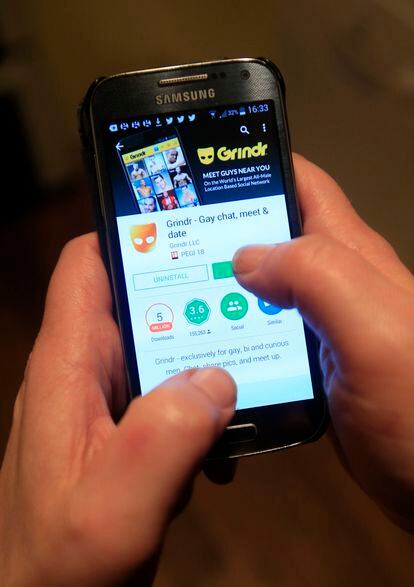
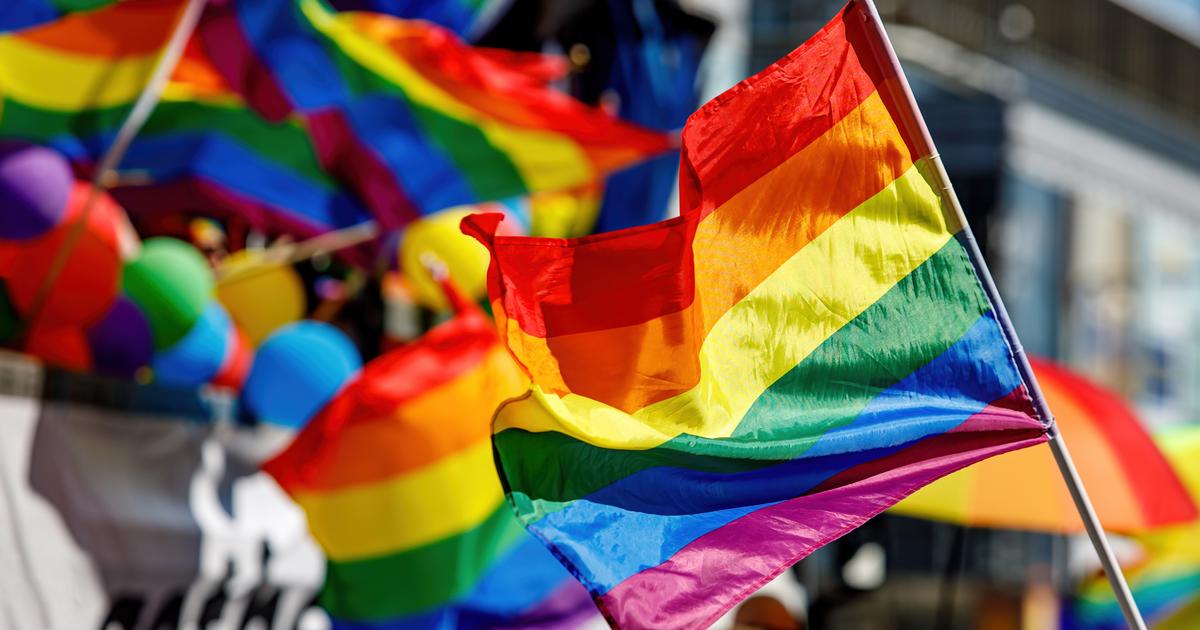
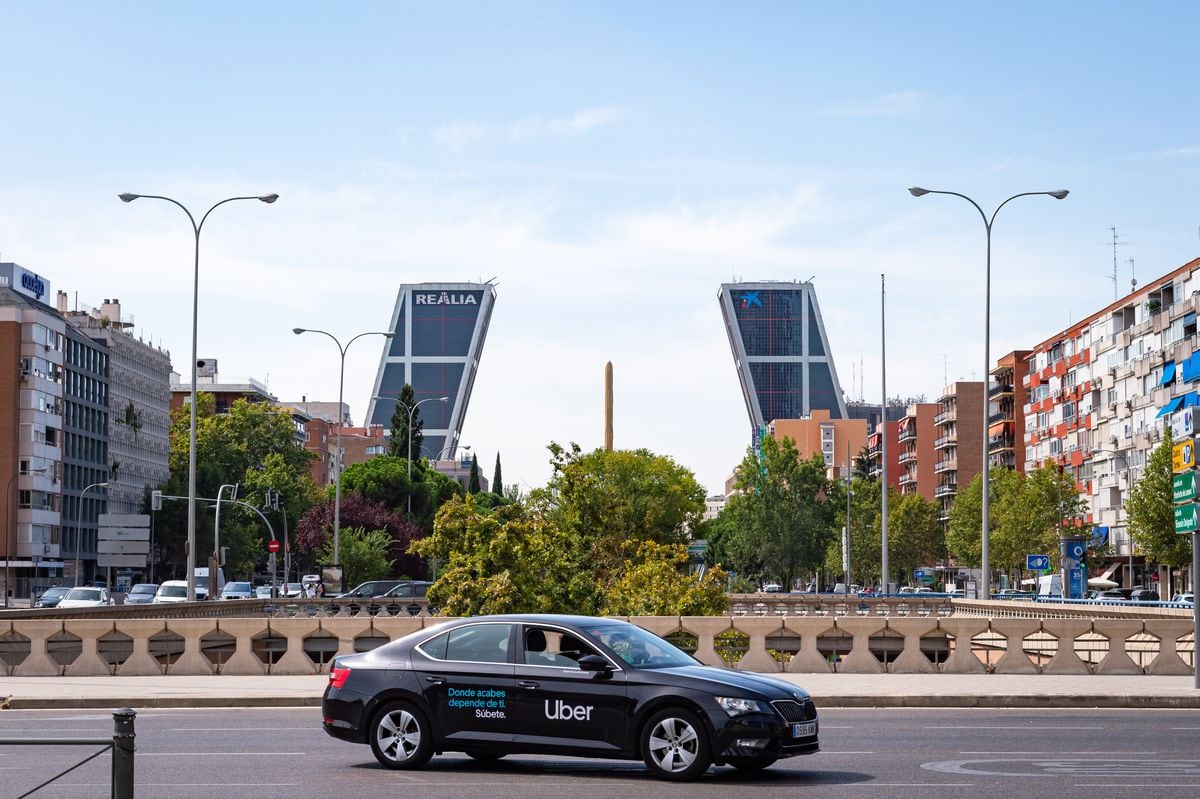


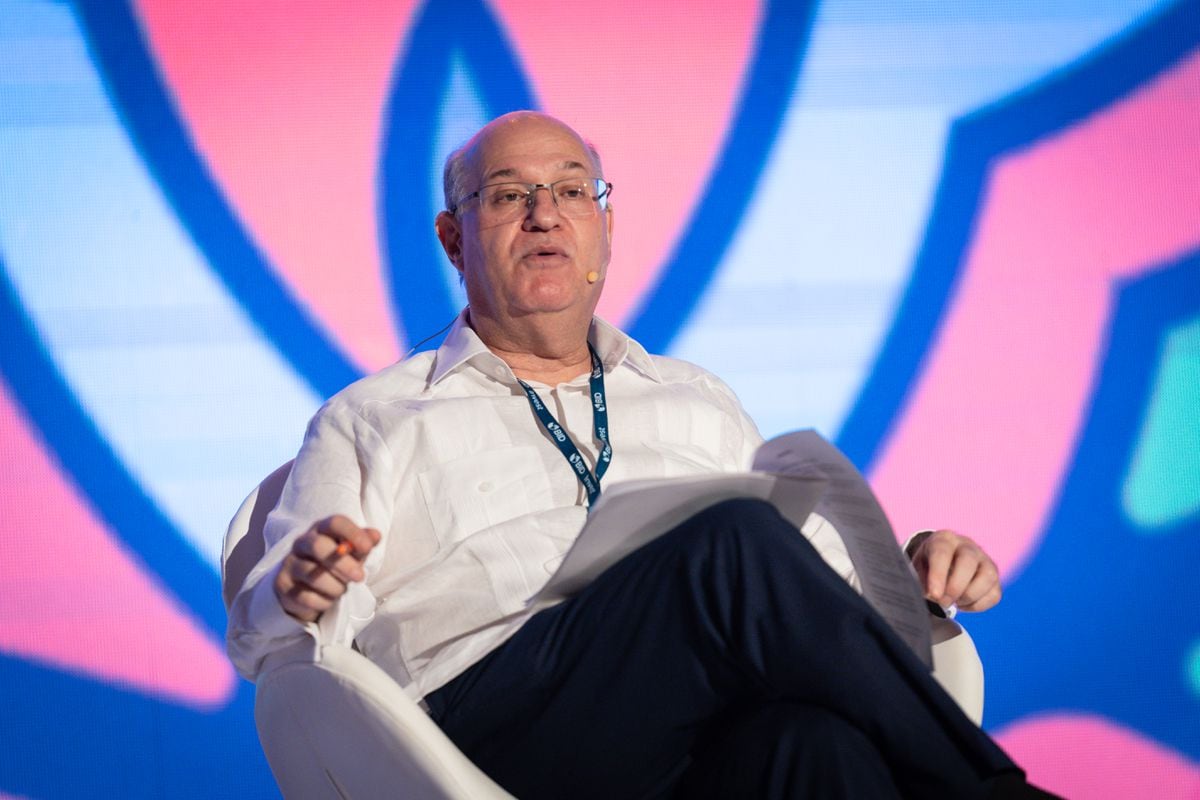
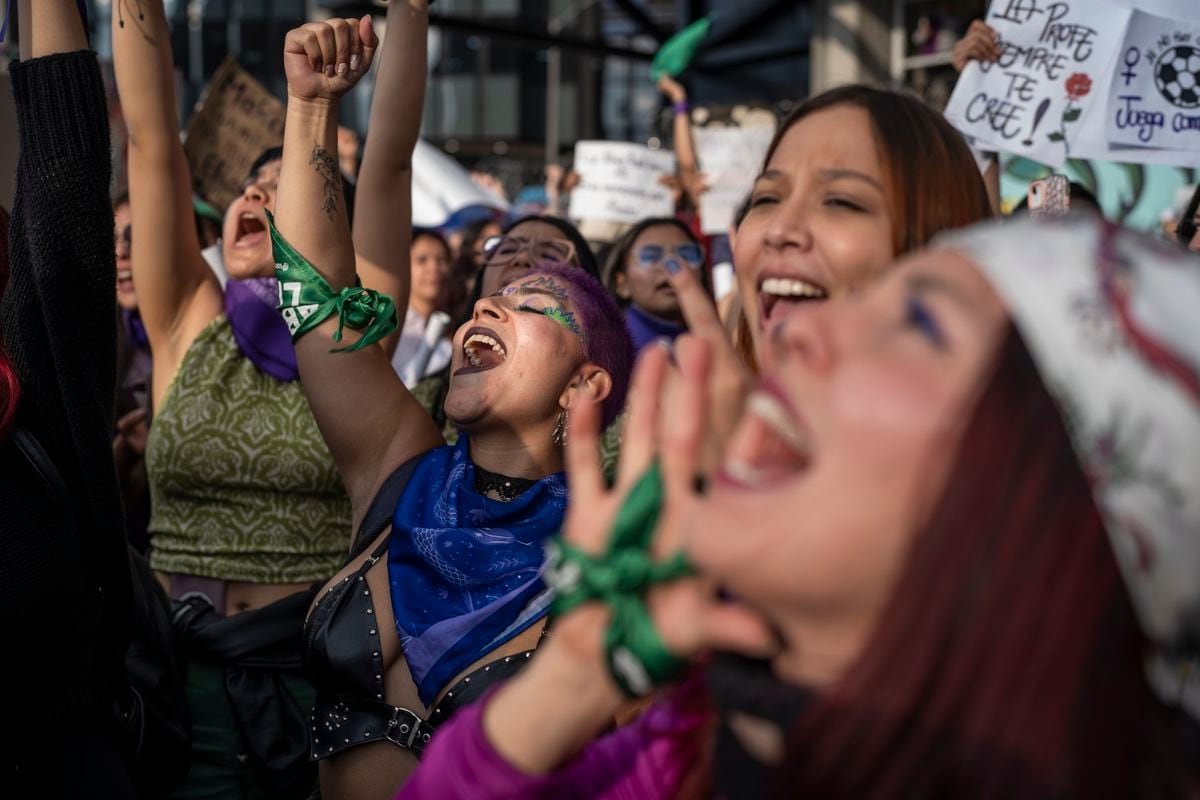
/cloudfront-eu-central-1.images.arcpublishing.com/prisa/FL3CETYG4BGOVL2TOXV6OMJUKE.png)
